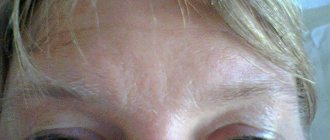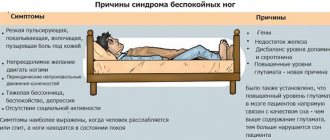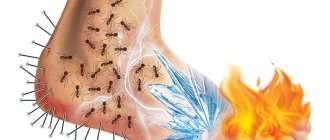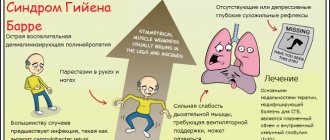Let's look at what Diogenes syndrome is and how it manifests itself. Probably, many have encountered people who have some special passion for hoarding. At first glance, they resemble tramps or poor people trying to drag with them as much different rubbish as possible.
In fact, this condition is a manifestation of a fairly common mental illness - Diogenes syndrome. This disease affects about 5% of older people, although it also occurs among young people.
What is Diogenes syndrome
Diogenes syndrome - what is it? This is a mental disorder in which a person begins to show extreme disdain for himself and life in general. Otherwise called senile squalor syndrome. It is characterized by complete isolation from others, reluctance to do anything, and a tendency to accumulate unnecessary things and various rubbish.
The patient refuses hygiene procedures and home cleaning. Doesn't want to communicate with other people. And yet he does not understand what the problem is.
According to ICD-10, Diogenes syndrome is not considered a separate disease. This is due to the fact that it develops in many brain pathologies. In particular, this is a violation of cognitive functions and emotional-volitional status, which entailed personality changes. This also includes conditions such as, for example, senile dementia, schizophrenia, and the consequences of excessive consumption of alcoholic beverages.
Who is Diogenes
The philosopher Diogenes lived during the times of Ancient Greece. He led an ascetic lifestyle. His dwelling is an earthenware jug that stood in the center of Athens. There he slept and ate food. The latter, by the way, was considered by the Greeks to be a manifestation of extreme disregard for others.
According to many experts, calling pathological hoarding syndrome after a philosopher is incorrect. He, of course, was an ascetic, but he did not collect various rubbish. In addition, he was always ready to communicate with other people and even sought it out. That is why the disease is often associated with Plyushkin, the hero of N.V. Gogol’s poem “Dead Souls.”
Psychotherapy
However, it is very rare to come to an agreement. And psychological correction is impossible, since Plyushkin syndrome is of an organic nature, and patients do not have a critical attitude to what is happening. Treatment in a psychiatric institution is still considered the most rational.
This is what really scares many relatives. However, it should be remembered: the earlier such a patient takes therapy and is observed by a doctor, the slower the pathological craving for collecting will progress. Otherwise, do not forget that a fire in a cluttered apartment often claims the lives of both the owners and the unfortunate neighbors.
The extent of damage to the frontal lobes is determined using computed tomography. Drug therapy includes antidepressants, sedatives and antipsychotics.
But who could use the help of a psychologist are the relatives and friends of such Plyushkins. After all, at first you don’t want to admit the fact that your loved one has crossed the line of “frugality.” And then - it’s so difficult to remain calm when the shared home turns into a trash bin. But the health of your loved one depends on you and your sober assessment.
Lapshun Galina Nikolaevna, Master of Psychology, psychologist I category
One of the mental disorders is often perceived by other people as senile whim or stinginess. In fact, this is a disease that affects 5% of older people. Young people are not immune from it either. In psychiatry, this disease is called “Diogenes syndrome.”
Everyone has come across people on the street collecting things from garbage dumps and taking them home. Some were “lucky” to live with them on the same staircase. Old clothes constantly hanging on the balcony, a cluttered balcony, an apartment filled with rubbish, cockroaches scattering from the apartment to the neighbors. It’s not a stingy person or a slob who lives in this apartment, just a sick person.
In severe cases, these people look like beggars and consider themselves so, although they may have significant savings kept “for a rainy day.” However, they steal everything they find from the trash heap. They are happy to take things that kind-hearted citizens give them. The “Plyushkins” will never get rid of the junk that has been stored in their apartment for years. They will always find a completely logical explanation for any box, old magazines, used clothes, old shoes, bottle, empty tin can, food products with an expired expiration date: “I need this,” “I’ll recycle it,” “I’ll patch it up and wear it,” “I’ll change it for myself,” “it’s new,” “yes, it’s only three days past its expiration date.”
This trash is incredibly valuable in the eyes of the owner, and when they try to throw something away, relatives get a full-fledged scandal. You can find completely new things in the rubble.
Rubbish spreads throughout the apartment and the owner has to dig through real passages in it in order to be able to get from the room to the kitchen or toilet. Packages of “only three days expired” food burst under the weight of things piled on them, and they are gnawed by cockroaches and mice. The food begins to rot, spreading the smell to neighboring apartments.
Often household appliances in the apartment do not work, the water supply system is disrupted, because it is simply impossible for the repairman to go through all these mountains to the repair site. As a result, patients stop taking care of themselves, cleaning the house, and washing clothes. In very severe cases, the living space of “Plyushkin” is reduced to a hole under the ceiling in a shelter where you can lie down. Everything else is given over to trash and cockroaches. The result is hordes of cockroaches and mice in the house and fires.
The worst thing is when animals become the object of collecting. A person with Diogenes syndrome cannot walk past a stray cat or dog. He feels sorry for them. A worthy feeling, but in the end, up to a hundred cats or several dozen dogs can live in a room of 20 square meters.
We were all fond of collecting as children. For some it passed quickly, for others it turned into a serious passion. Where the line is after which a harmless hobby turns into a disease has not yet been determined.
One theory based on research suggests that people prone to Diogenes syndrome have an underdeveloped frontal cortex, which is responsible for rational behavior. The impetus for the development of the disease can be:
- various stresses;
- head injury;
- loneliness;
- diseases affecting the nervous system;
- surgical intervention;
- age-related changes in the cerebral cortex.
Treatment
Is it possible to cure Diogenes syndrome completely? This mental disorder is difficult to diagnose in its early stages. Usually such behavior is mistaken for some eccentricity. Without medical help, mental illnesses usually progress, and soon life becomes impossible in the neighborhood of the sick person.
The best option if the disease is noticed in time is to consult a psychiatrist. If the disease has progressed too far, it can be corrected with medications. With regular and constant use of the drugs, remission occurs and a return to a normal lifestyle.
In our society, the fear of psychiatry is strong and persuading a patient to see a doctor is often an impossible task. In the initial stages, psychiatrists advise directing the course of the disease in a peaceful direction by collecting a collection of something homogeneous. You can persuade the patient to collect postcards on a certain topic or embroidery designs. A person will spend time searching and placing exhibits from his collection in a special album, and copying other people’s sketches for himself. There will be no time left for trash.
Animal lovers can be persuaded to collect their images on postcards, stamps, and other items. If you have a passion for old periodicals, you can agree that it will be a product on a certain period of time or topic. Over time it can become a truly valuable collection.
No matter what a person collects, sooner or later it ceases to fit in the space allocated for the hobby. There is no room on the walls for another portrait of a cat, folders with sketches and albums with postcards fall out of cabinets, bundles of old newspapers and magazines encroach on the room space.
You can achieve the maintenance of order by arguing that the collection in such an unsystematized state is very inconvenient to look at. Friends and acquaintances who came to look at the exhibits have nowhere to even sit. You should show interest in the hobby of a person close to you and, at least once every few days, be sure to talk about it.
It is not simple. For such patients, often everyone around them is an enemy. But here you need to be patient. Often such “psychotherapy from relatives” gives very good results.
If everything has gone too far, then only hospital treatment can help. It should be borne in mind that a patient can be admitted to a clinic only with his consent or after he is declared incompetent. For this reason, it is almost impossible to treat such a patient in a hospital. He will not give consent, he will not be recognized as incompetent, because in other areas the patient is quite adequate. And this behavior is still considered a lifestyle. It is these factors that complicate the treatment of a person with Diogenes syndrome.
At least once, each of us has come across elderly people leading a semi-vagrant lifestyle and collecting rubbish in landfills. Such old people give the impression of being poor, abandoned by their relatives. Few people thought that this condition is a widespread psychiatric illness and is called Diogenes syndrome. Let's find out in more detail, what is it?
There are many mental disorders caused by age-related changes. Diogenes syndrome is a pathological mental state with characteristic features:
- hoarding;
- shamelessness;
- indifference.
Diogenes syndrome is a pathological mental condition
Symptoms of Diogenes syndrome
In addition to pathological hoarding, Diogenes syndrome is characterized by the following manifestations:
- ignoring hygiene rules;
- almost complete isolation from society;
- lack of shame;
- unwillingness to do anything;
- stinginess, greed;
- lack of self-criticism;
- aggression in response to criticism and remarks from outside.
In most cases, a person suffering from Diogenes syndrome lives in poverty. But this is not due to lack of money. Most often, they have savings that they keep either in a safe place at home or in a bank account. No one can touch them.
The patient takes home everything he finds in landfills. This could be cardboard, broken furniture, children's things and toys, and much more that he will never need. Sometimes things are replaced by stray animals. A person collects cats and dogs at home, which, naturally, he cannot properly care for.
Due to the large amount of trash or pets, there is an unpleasant smell in the apartment. But people don’t seem to feel it or don’t want to notice it. They will never get rid of their “wealth”. Moreover, they aggressively refuse to treat diseases caused by unsanitary conditions.
Most often, older people experience Diogenes syndrome. Those at risk are those who have been interested in collecting things for many years, for example, badges, coins or stamps. But recently the disease has become “younger”.
Brief description of the pathology
Diogenes syndrome is a rare disease primarily found in Europe. Pathology is detected in 3% of the elderly population (over 65 years old). In some cases, the disease is diagnosed in younger patients.
The development of the deviation is indicated by the clutter of the room where the sick person lives, the presence in the house of an abundance of unnecessary things (old clothes, waste paper, parts from various devices, furniture, spoiled food).
Most often, such “valuables” end up in the patient’s home from landfills or garbage cans. Sometimes patients begin to bring carcasses of animals into the house.
The inevitable result of the accumulation of garbage is unsanitary conditions, from which both the person with Plyushkin Syndrome and his relatives and neighbors suffer. When trying to get rid of trash, most patients express violent protest and begin to come up with various excuses and tricks for preserving the collected items.
Individuals with Diogenes Syndrome may appear to others as unhappy, poorly dressed, and half-starved. However, despite their unkempt appearance, these patients are often wealthy and have caring relatives.
Stages of Diogenes syndrome
Experts distinguish 5 stages of development of this pathological condition:
- A person's home is constantly in chaos. But there aren't a lot of useless things there yet. At this stage, the patient’s behavior does not cause concern.
- Gradually, there is more garbage in the apartment or house, which the patient forgets to get rid of. An unpleasant odor and mold appear.
- There is more and more junk. It takes up all the free space. Sometimes it is difficult to walk from one room to another.
- It is simply impossible to stay in the home. Everything is dirty, covered in mold and emits an extremely unpleasant odor. It's hard to say when the place was last cleaned.
- It is no longer possible to live in an apartment. Even the walls and ceiling were damaged. The unpleasant smell begins to bother the neighbors.
Complications
The patient’s condition may worsen due to self-neglect. Such people not only forget about the basic requirements of hygiene and sanitation, they often forget to eat or take necessary medicine. Due to the fact that a person is constantly in a state of mental stress, there is a high risk of developing physical collapse. It is at this time that psychosomatic diseases can develop or worsen:
- pneumonia;
- migraine;
- gastritis, pancreatitis;
- ulcer, ulcerative colitis;
- radiculitis;
- neuralgia;
- hypertension, coronary heart disease;
- bronchial asthma;
- psoriasis, atopic dermatitis;
- diabetes;
Diogenes syndrome can lead to diabetes
- rheumatoid arthritis;
- thyrotoxicosis;
- obesity;
- in some cases, oncology.
Often it is one of these diseases that causes the death of a patient with Diogenes syndrome.
Causes
The main reason for the development of Diogenes syndrome is disturbances in the functioning of the frontal lobe of the brain. This is where the center responsible for rational thinking is located. Factors that provoke problems are considered:
- various traumatic brain injuries;
- severe stress;
- excessive consumption of alcoholic beverages;
- taking drugs;
- age-related mental disorders;
- pathological tendency to accumulate trash.
Previously, stinginess or poverty for many years was considered another reason. But later scientists proved this statement wrong.
Symptoms
Absolute indifference to appearance and the norms of social society make a patient with Diogenes syndrome look like a street tramp. Within the limits of the norm, public undressing and dressing, as well as finding things in landfills is acceptable.
The plot of “Dead Souls,” namely the character Plyushkin, gave a clear picture of the concept of a syllogmaniac, collecting all the necessary and unnecessary rubbish in his closet. Plyushkin's problem is that he not only does not throw away old things, but also brings in new ones. Inappropriate aggression towards throwing away one's belongings turns into mental mania.
Symptoms of the disease are:
- isolation from the outside world;
- unwillingness to live in cleanliness and order;
- anger in response to outside attempts to help;
- lack of shame;
- greed to spend money;
- accumulation of old trash.
When collecting stamps or small souvenirs in childhood, no one can predict that this is fraught with a mental disorder in the future. It is quite difficult to notice the disease at an early stage, since both poor and wealthy people suffer from it.
Initially, this may manifest itself in a desire to save on rent or food, then on things. Neighbors must notice the enclosed space and their constant presence in it and must signal this.
Indifference to one's appearance and lack of daily hygiene procedures leads to an unpleasant odor and turning into a street tramp. The reluctance to communicate with friends and acquaintances does not concern a patient with Plyushkin syndrome, since he considers it beneath his dignity.
Diagnosis and treatment
As stated above, Diogenes syndrome is not an independent disease. This is a symptom of one of the mental disorders. They can be diagnosed using brain imaging, which will show damaged areas or tumors. A visit to a psychiatrist is also needed.
How to treat Diogenes syndrome? Difficulties may arise in this matter because the patient is not aware of the problem. So, family and friends must take responsibility for its decision. They are the ones who should pay attention to warning signs and ask a doctor for help.
Typically, nootropic drugs that normalize brain function, antipsychotics, and antidepressants are used to treat Diogenes syndrome. But this is not enough.
It is necessary to give the patient motivation to act. Tell him, for example, that his large “collection” needs to be organized, otherwise it will be unpleasant to look at. Gently lead him to the fact that he needs to observe the rules of hygiene both in relation to himself and in relation to his home. Tell the person that you would like to visit him more often, but you don’t even have a place to sit.
Never throw away things without his consent. This can provoke anger and aggression. It is better to surround the patient with care and love. Show that under any circumstances you remain a loving person.
If all else fails, the only way out is treatment in a psychiatric clinic. But remember that it requires either the consent of the patient himself or a court decision.
How does it manifest?
The symptoms of the disorder are obvious, but not to the patient. Over time, his home, like himself, completely changes, but “Diogenes” himself does not notice this or refuses to notice. That is why the person’s relatives are of great importance for diagnosis and should pay attention to:
- a tendency to collect unnecessary things, junk and a reluctance to get rid of them (old newspapers, broken watches, rags, clothes);
- deterioration in appearance (a person stops bathing, washing clothes, cutting his hair, combing his hair);
- distrust of others, even close relatives;
- aggressive attitude towards others;
- greed, reluctance to share anything (“this is mine”);
- lack of a sense of shame (the person looks like a homeless person, but this does not bother him);
- desire to be alone (the patient prefers to be alone at home, feeling safe and comfortable).
The key symptom is hoarding, a reluctance to part with completely useless items (for example, broken batteries or torn bags). Over time, the home of a person with this disorder turns into a dump where it is impossible to move around without hitting something. Sometimes a person blocks access to the doors to the bathroom, kitchen, and entrance doors with trash.
It is also noteworthy that financial status does not in any way affect the development of this disease. The patient may have a good salary, pension, savings in a bank account, but he will be inclined to buy cheap food, clothes, skimp on money and count every penny.
Forecasts and preventive measures
The prognosis, unfortunately, is unfavorable. Treatment will improve the patient's condition, but not for long. After some time, the symptoms of Diogenes syndrome will return.
As for prevention, it is associated with increased mental activity. It is recommended to regularly devote time to reading, solving crosswords, and studying foreign languages. You also need to change your lifestyle by taking up, for example, sports. You should spend more time outdoors.
To prevent the syndrome in older people, you need to provide them with adequate nutrition, monitor their health, and control their weight. It is important to establish a sleep and rest schedule.
Typical symptoms
The first manifestations of dementia often do not cause suspicion or special concern among others. Many patients neglect basic order in their room and explain the chaos reigning in it by the lack of time or energy to clean.
As Diogenes Syndrome progresses, signs of a person's personality changes become more pronounced. The disease is manifested by the following symptoms:
- Reluctance to throw away old, unnecessary things.
- Refusal to keep the premises clean.
- Lack of personal hygiene.
- Indifference to appearance.
- Excessive greed.
- Antisocial behavior, isolation.
- Lack of modesty.
- Apathy.
If others try to change the situation for the better, they often have to deal with the patient’s aggression. Due to lack of personal hygiene, patients can be exposed to various infections and skin diseases. People with Diogenes Syndrome most often refuse treatment outright.
The sad ending of the disease is alienation from the surrounding reality, personality degradation, and the patient’s complete indifference not only to others, but also to his own person.
An example of senile squalor syndrome
Kurt Degerman lived in the Swedish city of Skellefteå. This man led a miserable existence for 3 decades. He lived in a landfill, ate what he found there. At the age of 60 he died. What is the interest of this case? It seems like nothing unusual, a homeless person, of which there are thousands.
Kurt had Diogenes syndrome. Around the age of thirty, he decided that he no longer wanted to spend money on stores. This concerned food and clothing. The man moved to the trash heap. All the money he earned from trading banks or begging, he spent on securities and precious metals. As a result, by the time of his death he had accumulated a considerable fortune. I just couldn’t use it anymore. Everything went to relatives. And they, by the way, claimed that Kurt was well versed in the financial topic.











